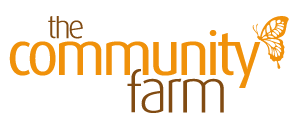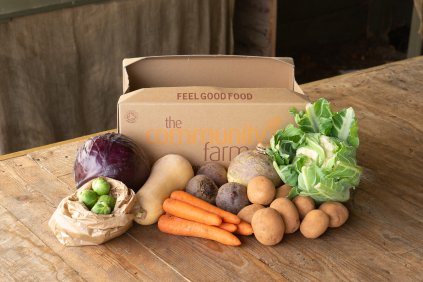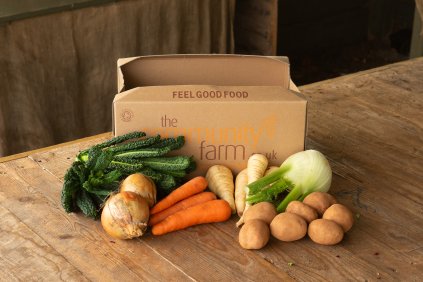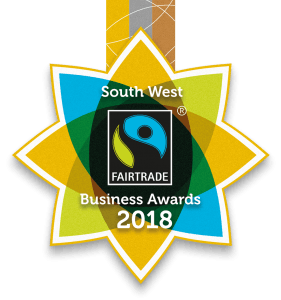Over the last couple of months we have had various conversations at The Farm about the Black Lives Matter movement.
Although originally protesting police brutality against people of colour, the wider range of issues addressed by the movement point out how all sectors of society remain negatively influenced by various forms of discrimination, with race being a central part of that conversation.
This seems to beg the question: what can be done about this?
But perhaps now is not the time for immediate answers.
Rather, now is a time for us to learn and listen, to give and to create space for voices that have previously gone unheard.
Born in the UK to Persian parents, Ped has been with The Farm for 6 years but has not previously shared his thoughts and feelings about this complex issue. In this short, personal piece, he gives voice to his frustrations as a person from a minority ethnic background trying to participate in the minimally diverse environmental and farming sectors.
Although he is stepping down as our Managing Director at the end of this month, Ped has promised to remain involved with our efforts to actively engage with this topic, and to help us ensure that the environment we create at The Farm is welcoming, supportive and inclusive: something we have always strived to do, and something that we are always seeking to improve.
This hasn’t been easy to write. It turns out the more personal something is, the harder it is to fully articulate. Sure, much of what I write about for The Farm is personal because I care about what I do, why I do it and what we are trying to achieve. But this stirs different emotions: anger, injustice, sadness. It forces me to address things I have repressed or turned a blind eye to when perhaps I could have spent more time and care unlocking and exploring them.
I am British. I was born in Bath, but more and more I find myself saying that I am Persian. This is not to say that Iran, my parents’ country of birth, is a perfect culture or society, but over the last few years I have begun to notice the things that isolate me from this island.
My parents came to this country during the Iranian revolution. My father was educated to degree level and had held a prominent position in a major bank in Iran. Why, therefore, did he have to try so hard to get a job here? Since his passing I have read through the countless applications he wrote and sent all over this country, and the countless rejection letters that followed. There is no doubt I have experienced similar things. Quite simply: no matter how good my application is, my name puts people off, consciously or not. The data shows that if you are of middle-eastern origin in this country you are 80% less likely to receive a job offer than an applicant who is white and of the same (or lesser) experience and education. My dad was a door-to-door encyclopedia salesman for Britannica, a job in which he excelled but was passed over for promotion time and time again. He had to quit and write a letter of complaint before he was acknowledged and promoted. Similarly, I have been ignored for promotion in prior jobs despite being a high achiever. Even at The Farm I was second choice for the role of Managing Director, and was later told by one interviewer that they didn’t remember me from the interview - despite, evidently, being the right person for the job!
Is this progress in our society? I was always taught to work hard and fight the odds to succeed, believing it was good parenting to keep me on the right track. With hindsight, my dad was more than aware of the discrimination that I would face throughout my life, and still continue to do so.
Someone at The Farm once told me that others thought I was privately educated and came from wealth. Is that what a white person assumes when a person of colour attains a high ranking position? Is it so hard to comprehend that they might have fought tooth and nail to get the opportunity? You begin to understand, then, how someone may assume that a black person stole their Mercedes rather than bought it. I had long-fooled myself into thinking that this kind of prejudice was only a problem in other countries. For me, though, the reality couldn’t be further away: I’m a child of refugees who had lost almost everything. I grew up in social housing. The strain of making a living in this county (amongst other things) helped implode my parents’ relationship and they divorced when I was young. We had little money, and I sometimes found myself feeling jealous of my peers. But my parents worked hard to survive and to provide. They put my sister and I through university and set us on a good path. I faced prejudice and racial discrimination and abuse throughout school, and especially in sport where I was subject to abuse on the football field and off it. Despite being one of the best footballers in my year group I never played for the first team, even though I played county football through the Sunday league. Why was this? People from the middle-east aren’t good at football, apparently. The stereotype trumps the reality.
On their own, these experiences could be attributed to a variety of factors, and I am not blind to think that it is solely a race issue in all of these instances. However, these are just a few of my experiences, and when you put it all together something begins to smell a bit off. White privilege is a thing that needs to be recognised. I have no doubt that if I was a white person called John Smith I would have had more positive outcomes throughout my life.
The environmental and farming sectors are the two least diverse in this country, and it’s interesting that this is where I have landed. Consistently I am the only non-white representative or speaker at events and gatherings, and major organisations in this sector are very white-led and populated. We need to tackle this lack of representation if we want to encourage engagement with more diverse groups. We have a lot to do to address these issues, and through my roles both at The Farm (although this will be my last communication as the MD here) and at Bristol Food Producers, I will do my best to lead and be part of the change.
The truth is, at The Farm, we have not done enough to address issues around diversity and inclusion. We may have done more than others, but, as an organisation who claims to champion these qualities, we need to be more progressive. In the future, we will be looking to become industry leaders when it comes to recognising the realities of intersectionality and how it affects us all.
The Black lives matters movement is giving us a chance to talk about these issues openly, without reproach or recrimination. White culture is beginning to listen, and not object or be defensive, and people of colour are beginning to feel like they have a voice that will be heard and respected.
I don’t want to tell you how you should treat these issues or point the finger of blame. I just want you to listen. Not just to me, but to all the stories and experiences of prejudice interwoven in the fabric of our society; that hold so many people back. Now is the time to start fully acknowledging that discrimination is very real, very much still with us, and has very real consequences.
Written by Ped Asgarian














